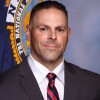Whether your agency qualifies the rank of supervisor as FTO, corporal, or sergeant, there is one universal principle you should adhere to – lead by example.
Regardless of your professional status, if you are in a position of authority over other individuals, people will look to you to set the standard. We do so daily in the way we speak, conduct ourselves in public and even how we wear our uniforms. However, when a supervisor or a command-level officer reaches the stage in their career where they are no longer “pushing a black and white” this obligation to lead by example seems to be abandoned quickly when it comes to maintaining physical fitness.
Ditch the excuses
The “low-hanging fruit” excuse often cited for a reduction in physical activity is lack of time. Being an executive-level officer means daily meetings, attending public events, combing through a bevy of emails and often extinguishing many fires.
Undoubtedly, the workload and expectations bestowed to high-ranking officers are not to be trivialized. However, it is critical for police leaders to recognize that regular exercise and a balanced diet are not merely good choices, but potentially life-saving measures. Along with getting adequate sleep, regular exercise and a healthy diet lower stress, strengthen your heart and may prolong your life.
Do it for yourself
While physical fitness is critical for patrol officers, or anyone serving on a unit where there is a propensity for physical engagement, it is also important for executives.
Exercise produces endorphins that help the body improve memory and overall mood. No one wants to work for a grouchy or capricious chief.
Exercising in the morning, where there may be fewer interruptions for executives, can result in higher energy for the day, increased focus on major tasks at hand and support for weight loss (if that is the goal). Having clarity to make informed decisions on matters that impact an agency is paramount to a leader’s success.
Do it for your officers
The adage of “Do as I say not as I do” also needs to be considered as a reason for embracing a fitness routine.
Most agencies have some baseline for health; a policy or guideline for assessing the physical fitness of an officer. Whether it is bi-annual physicals, bloodwork, blood pressure, or even body-fat checks, many police departments use some form of standard. Having a chief with a spare tire hanging over their belt who gets gassed walking up a flight of stairs, or looks like they are wearing a wetsuit, diminishes any credibility when having to discipline a subordinate for failing to meet physical fitness standards.
Where to start
If you have not seen the gym in years or are interested in getting yourself back in shape, the most important aspect to understand is that the heart is a muscle. Any physical exertion such as running, hiking, or a brisk walk will increase your heart rate. Like all muscles, frequent use in lieu of remaining sedentary will improve the health and function of the heart. Cardiovascular exercise is a key factor in managing weight, stress and circulation.
If you have access to a gym, a simple routine is the best way to get back into the habit of training. Five or six days a week may be excessive for a new or returning individual. Four days a week seems like a reasonable routine where muscle groups like chest/triceps, back/shoulders, legs/arms and core/cardio can all be incorporated.
YouTube is a terrific source for specific exercises for the body parts listed above. If an individual does not have access to a gym, then bodyweight exercises will have to suffice. Pushups, sit-ups, planks, functional stretching and sports-store purchased barbells/dumbbells/bands can still provide the basis for a great workout.
Here’s an example workout to get you started:
Chest/triceps: 3 sets x 10 reps of pushups, floor dumbbell presses, band pulls, triceps kickbacks, dumbbell skull crushers and 4 sets of 1-minute planks. This can all be done in a living room within a half hour.
Be the example
At the FBI National Academy, a major part of the curriculum is focused on wellness. Cardio, lifting and group exercise are part of the foundation that culminates with the running of the “Yellow Brick Road.” Having attended in fall 2019, I watched 237 of my classmates (from 28-60) improve their health by participating in these bi-weekly exercise sessions. Some took a minute off their mile while others dropped much more. Regardless of your rank, age or scheduling difficulties, you set a better example for your personnel by maintaining your physical fitness.
Whether you choose weightlifting, CrossFit, running or cycling, it benefits an agency to have a healthy, strong chief.
NEXT: Best exercises to minimize injuries, improve performance



